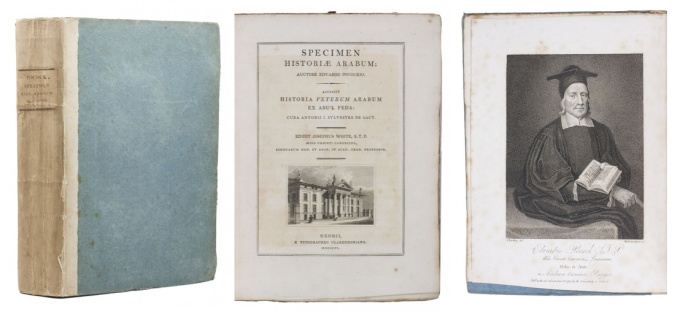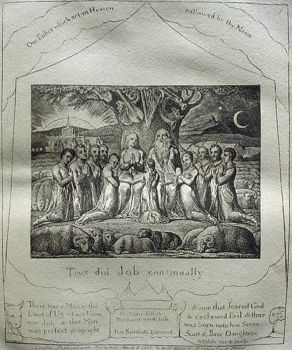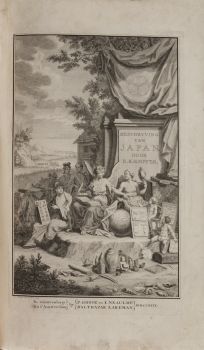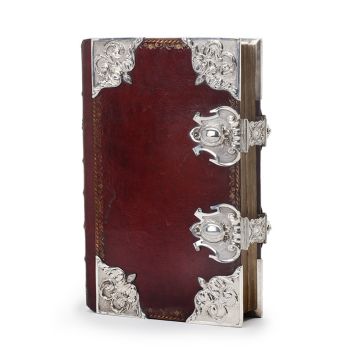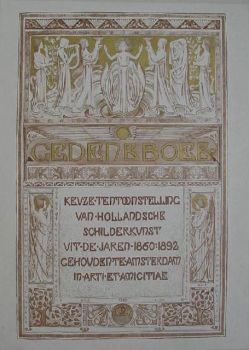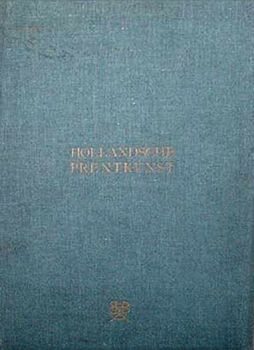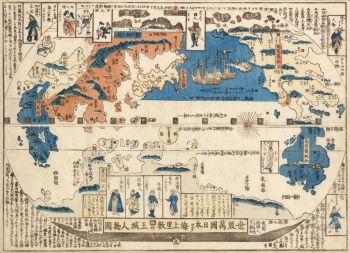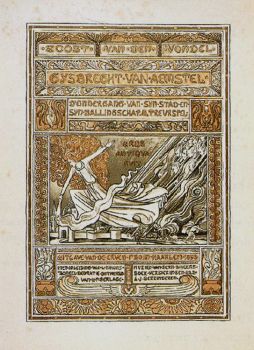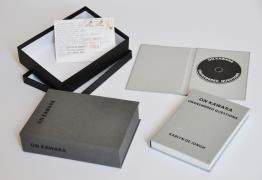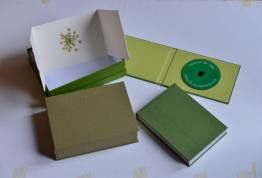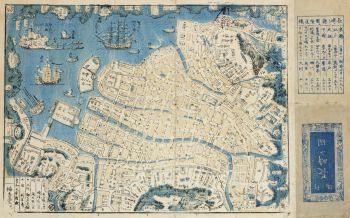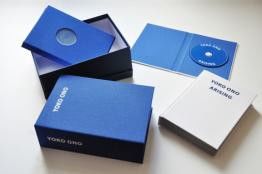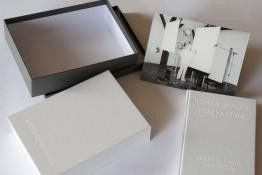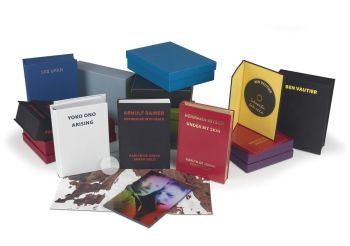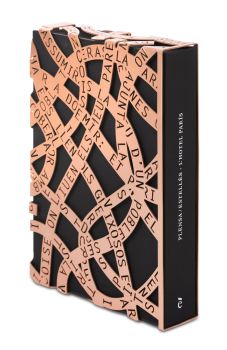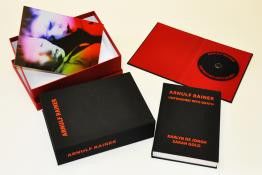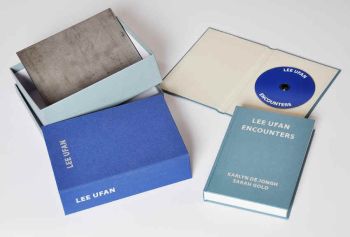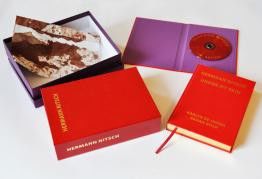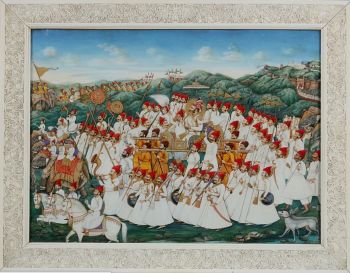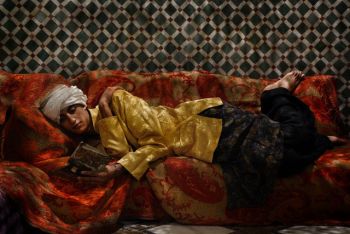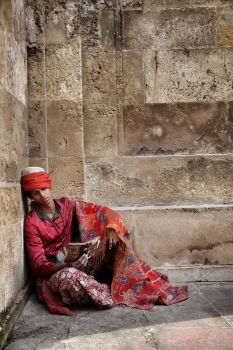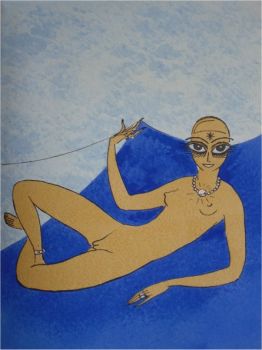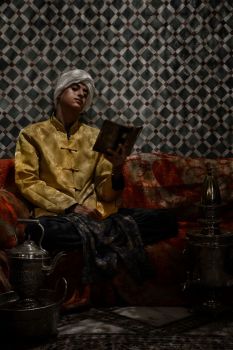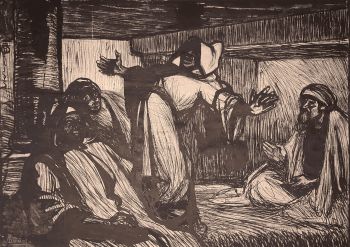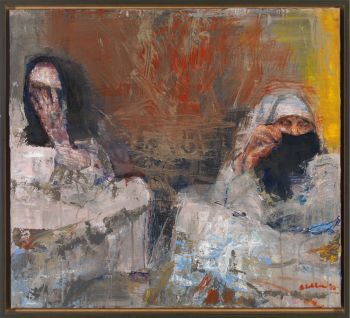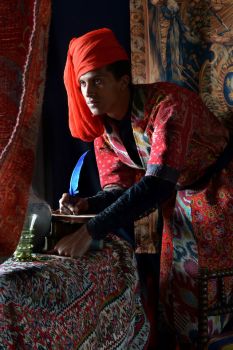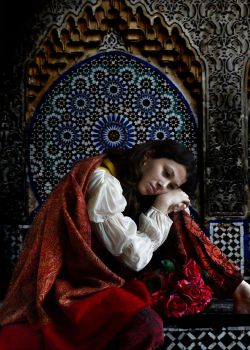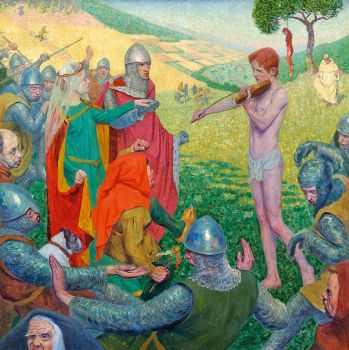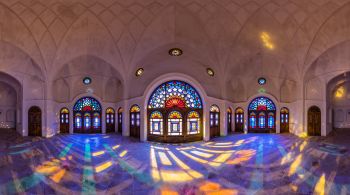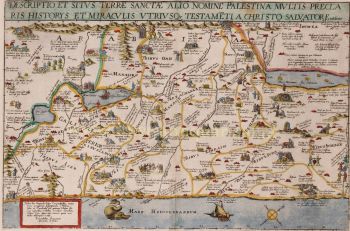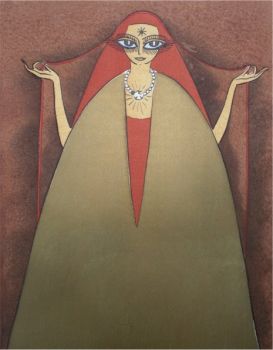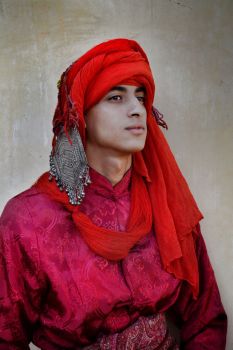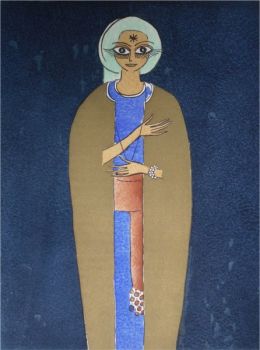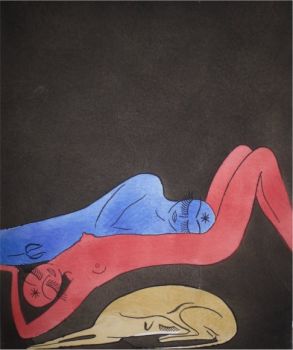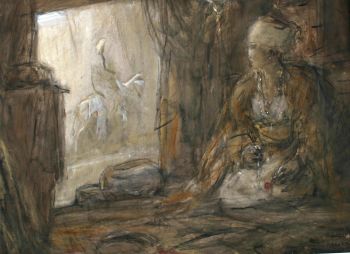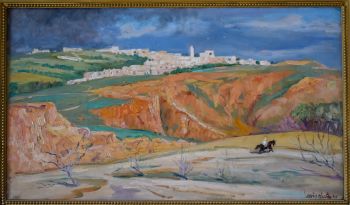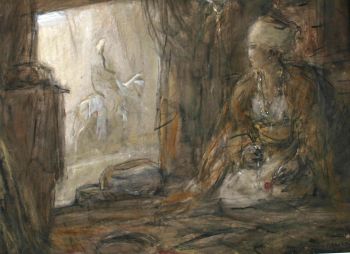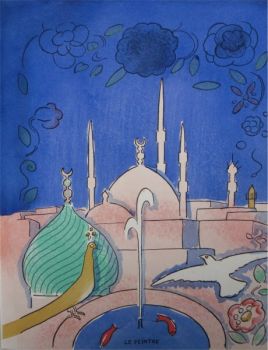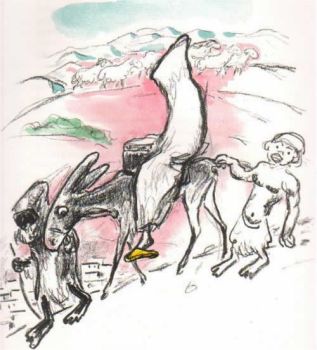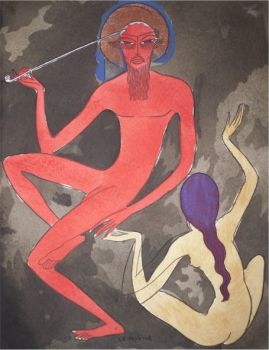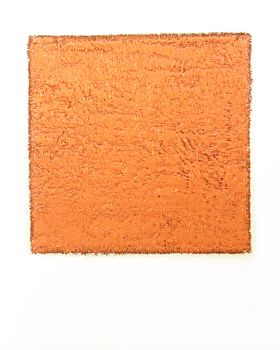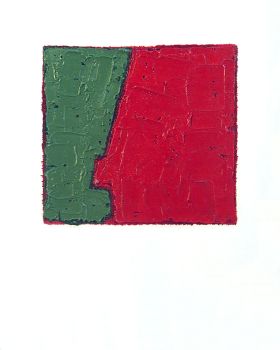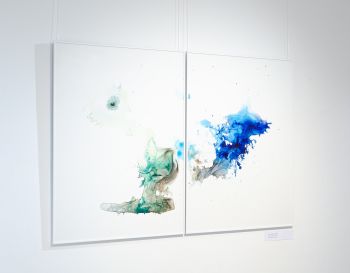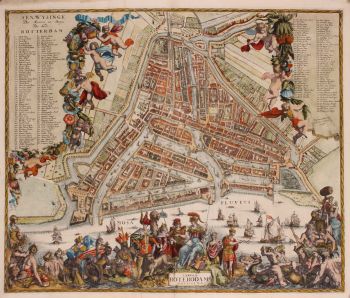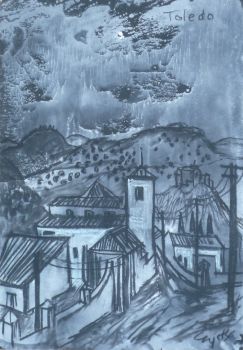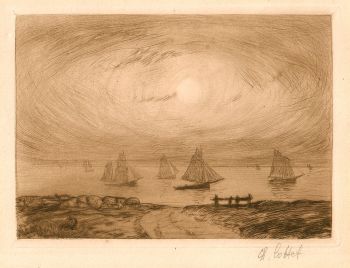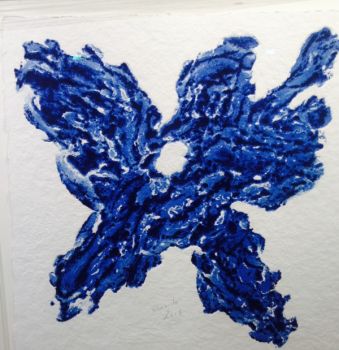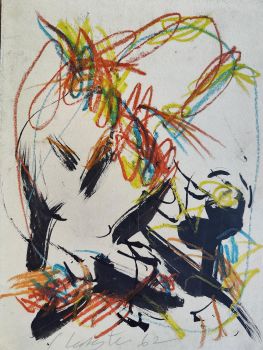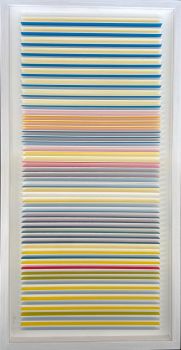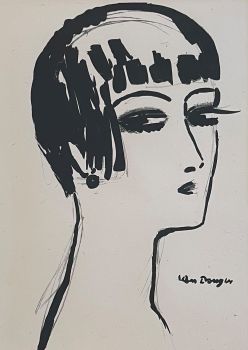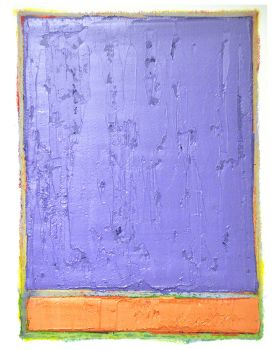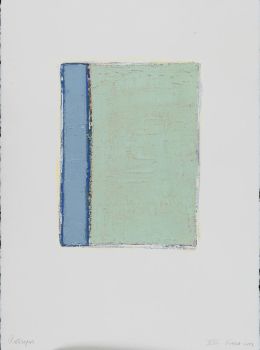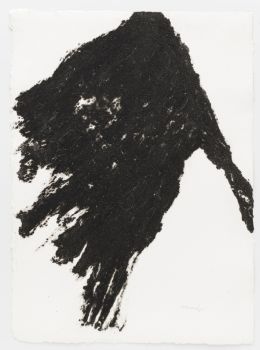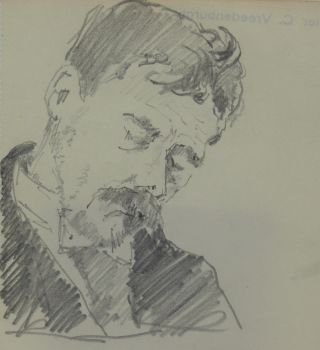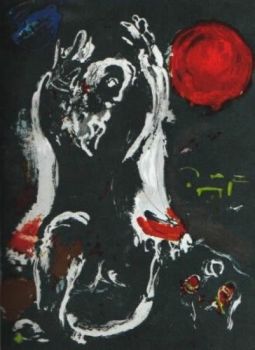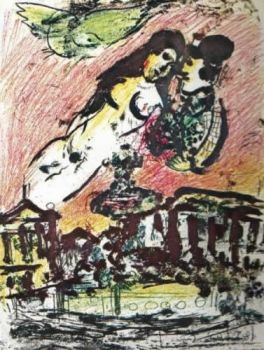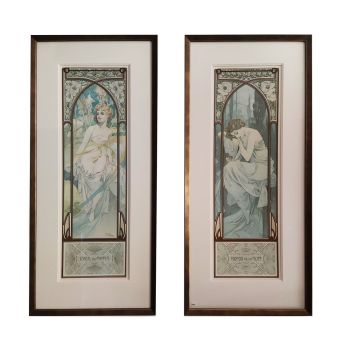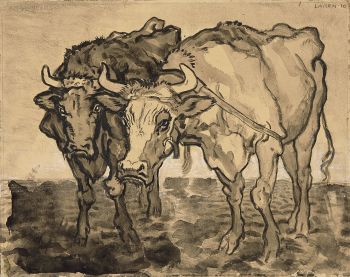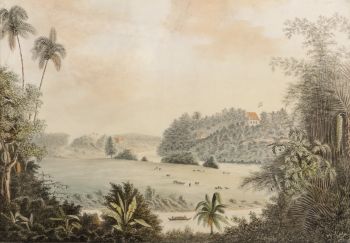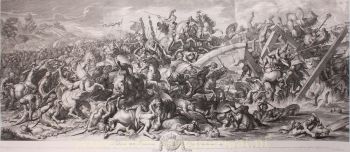Pococke's celebrated edition of Abu'l-Faraj's Islamic history "It is his greatest work, and of perma 1806
Edward Pococke
InchiostroCarta
Attualmente non disponibile tramite Gallerease
- A proposito di opere d'arteSpecimen historiae arabum; ... Accessit historia veterum Arabum ex Abu'l Feda: cura Antonii I. Sylvestre De Sacy. Edidit Josephus White, ...
Oxford, Clarendon Press [= Oxford University Press], 1806.
4to. Title-page with engraved view of the Clarendon Building, aquatint author's portrait and 1 full-page etched plate. Contemporary boards.
Second edition of Pococke's elaborate Specimen historiae Arabum, an excerpt from Abu'l-Faraj's Islamic history, in Arabic and Latin. The excerpt is "accompanied by a lengthy commentary (printed first in 1648) illuminating Islamic history, geography, mythology, religion, and literature from a wealth of sources, mostly unpublished and previously unknown in Europe. It represents a revolution in Arabic studies, being Pococke's attempt to show that far from being a mere ancillary to biblical exegesis, Arabic literature (in the widest sense) was worthy of study in its own right in the same way that classical cultures were. It is his greatest work, and of permanent scholarly value" (Toomer). Abu'l-Faraj's account is followed by unpublished fragments, in Arabic, of Abu'l-Fida's account of pre-Islamic Arabia, edited by Sylvestre de Sacy.
From the library of the Ducs de Luynes, with their bookplate on pastedown. Foxed, leaf Y4 with tear, otherwise in very good condition and wholly untrimmed.
Schnurrer 169; for Pococke: Toomer, "Pococke, Edward (1604-1691)", in: ODNB (online ed). - A proposito di opere artistaEdward Pocock, l'orientalista, nacque nel 1604 a Oxford, in una casa vicino all'Angel Inn, nella parrocchia di St. Peter-in-the-East, e lì fu battezzato l'8 novembre 1604. Suo padre, Edward Pocock Senior, immatricolato (come 'pleb. fil.' di Hampshire) al Magdalen College nel 1585, fu demy dal 1585 al 1591, tenne una borsa di studio dal 1591 al 1604, procedette BA 1588, MA 1592 e poi BD 1602. Un anno dopo, fu nominato Vicario di Chieveley nel Berkshire dove la famiglia aveva vissuto per almeno cento anni. Con sua moglie, Grace, la sorella di Henry Greatham, Edward Senior ha cresciuto sei figli e due figlie. Altre due figlie sono morte molto giovani. Sebbene ritenesse che l'Islam fosse una falsa fede, voleva anche screditare le polemiche, le invenzioni e il folklore rozze che rappresentavano erroneamente l'Islam e Maometto. Ha contribuito a fare da pioniere nell'uso delle fonti primarie e nel lavoro sul campo in contesti musulmani. La sua difesa della filosofia musulmana come degna materia di studio gli ha impedito di ridurre l'Islam ad aspetti legalistici, anche se era disinteressato all'Islam come fede viva. Tendeva ad avvicinarsi all'Islam come faceva con i testi antichi, di interesse storico piuttosto che contemporaneo. Aveva relativamente pochi studenti e poiché scriveva in latino il suo approccio non ebbe un impatto sul grande pubblico. Tuttavia, ha stabilito standard per lo studio accademico dell'Islam che hanno fatto molto per correggere gli errori del passato, per rendere inaccettabili la calunnia e l'invenzione. Ha dato un contributo significativo alla conoscenza della storia dell'Islam in Occidente. Pococke è da annoverare tra i padri fondatori degli studi arabi e islamici nell'accademia occidentale, insieme agli uomini che per primi occuparono le cattedre fondate a Cambridge (1633), Parigi (1535) e Leida (1613).
Artwork details
Categoria
Soggetto
Materiale e Tecnica
Related artworks
Engelbert Kaempfer
IL LIBRO DI ENGELBERT KAEMPFER1651 - 1716
Prezzo su richiestaZebregs & Röell - Fine Art - Antiques
Tilmanus Nicolaus Maastricht
Missale Romanum con fornimenti d'argento olandesi1788 - 1792
Prezzo su richiestaJacob J. Roosjen SRI
Antonie Derkinderen
Memory book Exhibition of Dutch Painting1892
Prezzo su richiestaKunsthandel Pygmalion
Antonie Derkinderen
Memory book Exhibition of Dutch Painting1892
Prezzo su richiestaKunsthandel Pygmalion
Yoko Ono
YOKO ONO: "ARISING" SIGNED BOOK PLUS SMALL ARTWORK 2010 - 2014
Prezzo su richiestaGallerease Selected
Engelbert Kaempfer
IL LIBRO DI ENGELBERT KAEMPFER1651 - 1716
Prezzo su richiestaZebregs & Röell - Fine Art - Antiques
Tilmanus Nicolaus Maastricht
Missale Romanum con fornimenti d'argento olandesi1788 - 1792
Prezzo su richiestaJacob J. Roosjen SRI
Hermann Nitsch
"UNDER MY SKIN" Signed book incl. small artwork and DVD in a matching box2010 - 2014
Prezzo su richiestaGallerease Selected
1 - 4 / 22Artista Sconosciuto
IMPORTANTE E RARO GRANDE DIPINTO INDIANO "COMPANY STYLE" SU AVORIO RAFFIGURANTE UNA SFILATA1850 - 1900
Prezzo su richiestaZebregs & Röell - Fine Art - Antiques
 A cura di
A cura diDanny Bree
1 - 4 / 24Rene Rietmeyer
"PORTRAIT OF BRAM BOGART SEPTEMBER 1999"1999
Prezzo su richiestaEuropean Cultural Centre Collection
Rene Rietmeyer
TOKYO - Kudan House - January 2021 #032021
Prezzo su richiestaEuropean Cultural Centre Collection
1 - 4 / 24

